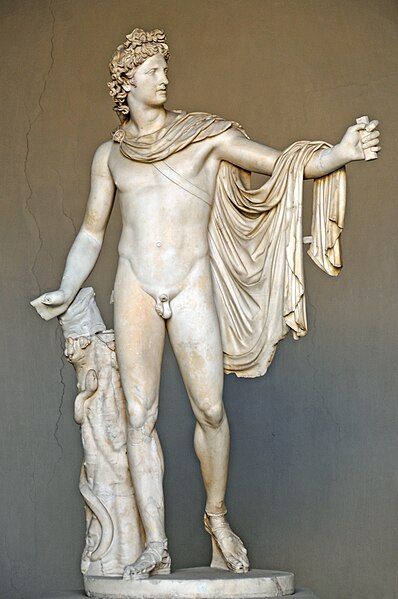The Pythian Games were one of the four Panhellenic Games of Ancient Greece. They were held in honour of Apollo at his sanctuary in Delphi every four years, two years after the Olympic Games, and between each Nemean and Isthmian Games. The Pythian Games were founded sometime in the 6th century BC. In legend they were started by Apollo after he killed Python and set up the oracle at Delphi. They continued until the 4th century AD.
The stadium of Delphi, Greece
This starting line at the Delphi stadium used for the Pythian Games at Delphi, Greece, has a design representative of that of many ancient Greek stadiums: stones with two lines in which the athletes nudged their toes, and round holes in which posts could be erected to support the start signalling mechanism.
The Pythian Games included a chariot race.
Apollo is one of the Olympian deities in classical Greek and Roman religion and Greek and Roman mythology. Apollo has been recognized as a god of archery, music and dance, truth and prophecy, healing and diseases, the Sun and light, poetry, and more. One of the most important and complex of the Greek gods, he is the son of Zeus and Leto, and the twin brother of Artemis, goddess of the hunt. He is considered to be the most beautiful god and is represented as the ideal of the kouros. Apollo is known in Greek-influenced Etruscan mythology as Apulu.
Apollo Belvedere, c. 120–140 CE
Apollo, God of Light, Eloquence, Poetry and the Fine Arts with Urania, Muse of Astronomy (1798) by Charles Meynier
Apollo, fresco from Pompeii, 1st century AD
Apollo sculpture, Palazzo Giusti Verona, Mannerist art with typical contrapposto







